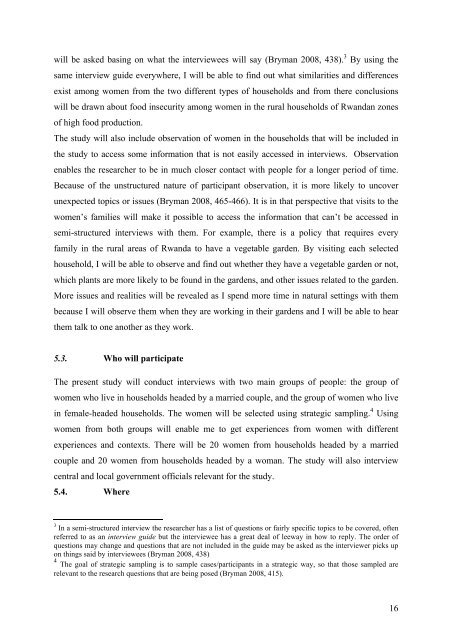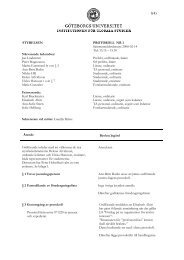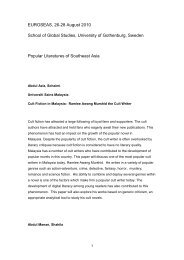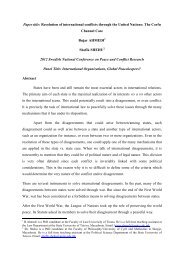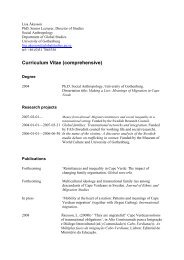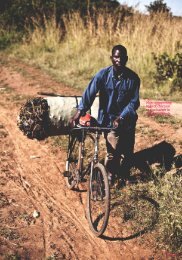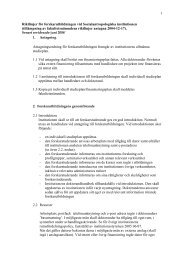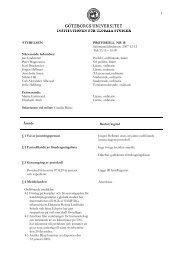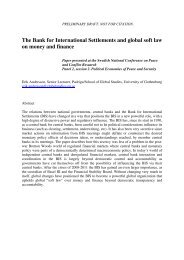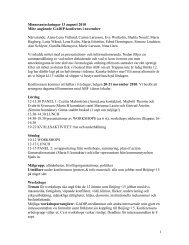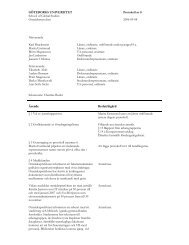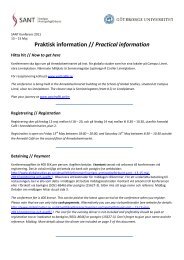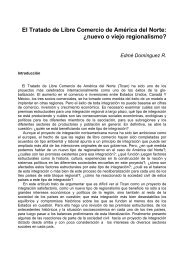1 Understanding food insecurity in rural Rwanda: how women ...
1 Understanding food insecurity in rural Rwanda: how women ...
1 Understanding food insecurity in rural Rwanda: how women ...
You also want an ePaper? Increase the reach of your titles
YUMPU automatically turns print PDFs into web optimized ePapers that Google loves.
will be asked bas<strong>in</strong>g on what the <strong>in</strong>terviewees will say (Bryman 2008, 438). 3 By us<strong>in</strong>g the<br />
same <strong>in</strong>terview guide everywhere, I will be able to f<strong>in</strong>d out what similarities and differences<br />
exist among <strong>women</strong> from the two different types of households and from there conclusions<br />
will be drawn about <strong>food</strong> <strong><strong>in</strong>security</strong> among <strong>women</strong> <strong>in</strong> the <strong>rural</strong> households of <strong>Rwanda</strong>n zones<br />
of high <strong>food</strong> production.<br />
The study will also <strong>in</strong>clude observation of <strong>women</strong> <strong>in</strong> the households that will be <strong>in</strong>cluded <strong>in</strong><br />
the study to access some <strong>in</strong>formation that is not easily accessed <strong>in</strong> <strong>in</strong>terviews. Observation<br />
enables the researcher to be <strong>in</strong> much closer contact with people for a longer period of time.<br />
Because of the unstructured nature of participant observation, it is more likely to uncover<br />
unexpected topics or issues (Bryman 2008, 465-466). It is <strong>in</strong> that perspective that visits to the<br />
<strong>women</strong>’s families will make it possible to access the <strong>in</strong>formation that can’t be accessed <strong>in</strong><br />
semi-structured <strong>in</strong>terviews with them. For example, there is a policy that requires every<br />
family <strong>in</strong> the <strong>rural</strong> areas of <strong>Rwanda</strong> to have a vegetable garden. By visit<strong>in</strong>g each selected<br />
household, I will be able to observe and f<strong>in</strong>d out whether they have a vegetable garden or not,<br />
which plants are more likely to be found <strong>in</strong> the gardens, and other issues related to the garden.<br />
More issues and realities will be revealed as I spend more time <strong>in</strong> natural sett<strong>in</strong>gs with them<br />
because I will observe them when they are work<strong>in</strong>g <strong>in</strong> their gardens and I will be able to hear<br />
them talk to one another as they work.<br />
5.3. Who will participate<br />
The present study will conduct <strong>in</strong>terviews with two ma<strong>in</strong> groups of people: the group of<br />
<strong>women</strong> who live <strong>in</strong> households headed by a married couple, and the group of <strong>women</strong> who live<br />
<strong>in</strong> female-headed households. The <strong>women</strong> will be selected us<strong>in</strong>g strategic sampl<strong>in</strong>g. 4 Us<strong>in</strong>g<br />
<strong>women</strong> from both groups will enable me to get experiences from <strong>women</strong> with different<br />
experiences and contexts. There will be 20 <strong>women</strong> from households headed by a married<br />
couple and 20 <strong>women</strong> from households headed by a woman. The study will also <strong>in</strong>terview<br />
central and local government officials relevant for the study.<br />
5.4. Where<br />
3 In a semi-structured <strong>in</strong>terview the researcher has a list of questions or fairly specific topics to be covered, often<br />
referred to as an <strong>in</strong>terview guide but the <strong>in</strong>terviewee has a great deal of leeway <strong>in</strong> <strong>how</strong> to reply. The order of<br />
questions may change and questions that are not <strong>in</strong>cluded <strong>in</strong> the guide may be asked as the <strong>in</strong>terviewer picks up<br />
on th<strong>in</strong>gs said by <strong>in</strong>terviewees (Bryman 2008, 438)<br />
4 The goal of strategic sampl<strong>in</strong>g is to sample cases/participants <strong>in</strong> a strategic way, so that those sampled are<br />
relevant to the research questions that are be<strong>in</strong>g posed (Bryman 2008, 415).<br />
16


